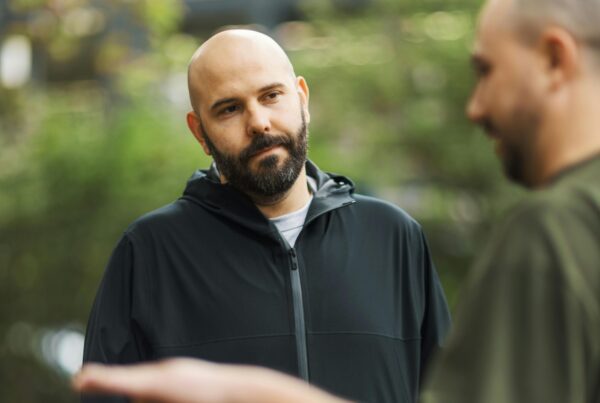If you’ve ever searched for trauma recovery therapy in Kansas City, you’ve probably seen the term EMDR pop up. Eye Movement Desensitization and Reprocessing (EMDR) sounds clinical—and maybe a little intimidating—especially if you’re not sure what it looks like in practice.
One of the most common questions people ask me is:
“What does it actually feel like to go through EMDR?”
That’s a fair question. It’s one thing to know that EMDR is backed by research and widely used for trauma recovery therapy. It’s another to imagine sitting in a therapy office in Brookside or Overland Park, trying it yourself. Let’s break it down in a way that’s both honest and relatable.

EMDR is Not Hypnosis
First, let’s clear this up: EMDR isn’t about being “put under” or losing control. You’re fully present and aware the entire time. The therapist guides you through the process, but you’re in the driver’s seat.
Think of it like this: you’re holding a tangled ball of yarn (your memory, your stress, your body’s reactions). EMDR doesn’t erase the yarn. Instead, it helps you slowly and safely untangle it so you’re no longer tripping over it every time you walk through life.
What People Often Notice During EMDR
Every person’s experience is unique, but here are some of the most common things clients in Kansas City have shared with me:
- A mix of emotions. You might feel sadness, relief, or even a surprising sense of calm when processing a memory.
- Body shifts. Some people notice tension in their chest, a lump in their throat, or even a deep exhale they didn’t know they were holding.
- A sense of distance. Over time, that sharp, painful memory can start to feel more like an old photo—something that happened, but doesn’t hijack your whole nervous system anymore.
- Curiosity. Many clients leave sessions saying, “That felt strange, but lighter somehow.”
Why This Matters for Trauma Recovery Therapy
Here’s where it gets really powerful: EMDR isn’t just about “talking through” trauma. In fact, you don’t have to tell your therapist every single detail if you don’t want to. Instead, it helps your brain and body reprocess experiences so they’re no longer stuck in survival mode.
That’s a big deal for folks seeking trauma recovery therapy in Kansas City—especially busy professionals, parents, and students who don’t have endless emotional bandwidth to retell their hardest stories.
A Kansas City Example
Imagine this: you’re driving down Ward Parkway, coffee in hand, but you’re suddenly flooded with panic because a song on the radio brings back a memory. Your whole body tenses, your heart races, and you’re back in survival mode even though you’re perfectly safe in that moment.
That’s what unresolved trauma can do. EMDR helps your nervous system learn: this memory happened, but I am safe now. With time, the same song might still remind you of the past, but it won’t send you into a spiral.
What People Ask Before Starting EMDR
Here are a few common questions clients bring to their first session:
- Do I have to relive everything in detail?
→ No. You’ll touch on memories, but the focus is on your present-day reaction, not storytelling. - What if I get overwhelmed?
→ A good therapist will pace the work carefully, teaching you calming tools along the way. - Does it really work?
→ Research and client experiences show EMDR is one of the most effective trauma recovery therapies available—and it works across a wide range of issues, from car accidents to childhood trauma.
The Bottom Line
If you’re searching for trauma recovery therapy in Kansas City, EMDR may be worth considering—not because it erases your story, but because it helps you finally live beyond it.
Healing doesn’t have to mean rehashing your past over and over. It can mean gently retraining your brain and body to respond differently, giving you more freedom in the present.
“The past affects us, but it doesn’t have to define us. EMDR helps make that shift possible.”
Ready to Explore EMDR?
If you’re curious about EMDR or wondering whether it’s right for you, we’d be glad to talk with you. Our Kansas City therapy team specializes in trauma recovery therapy and can walk you through what EMDR might look like for your unique story. Because healing isn’t just about surviving—it’s about reclaiming the life you want to live.





